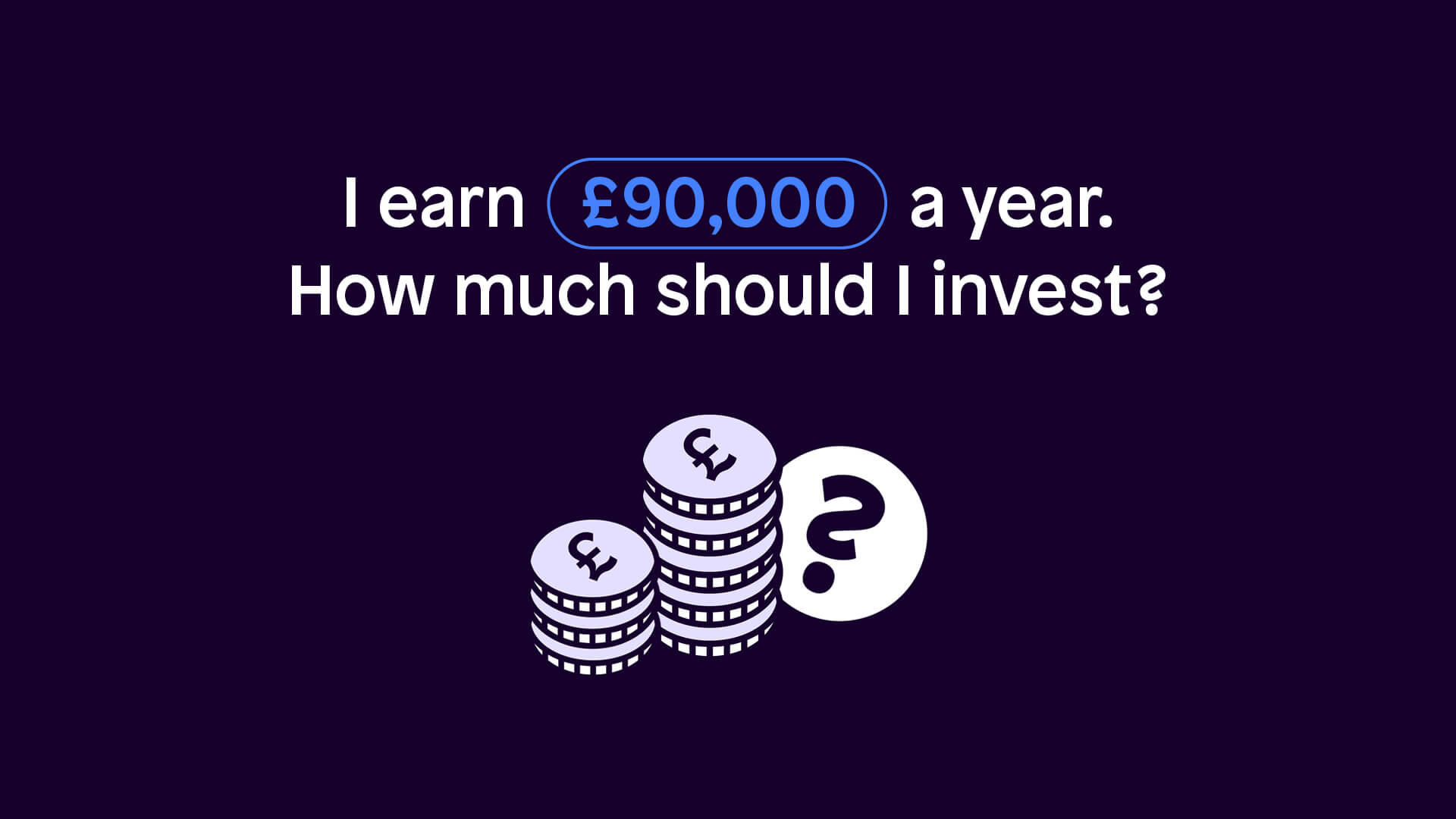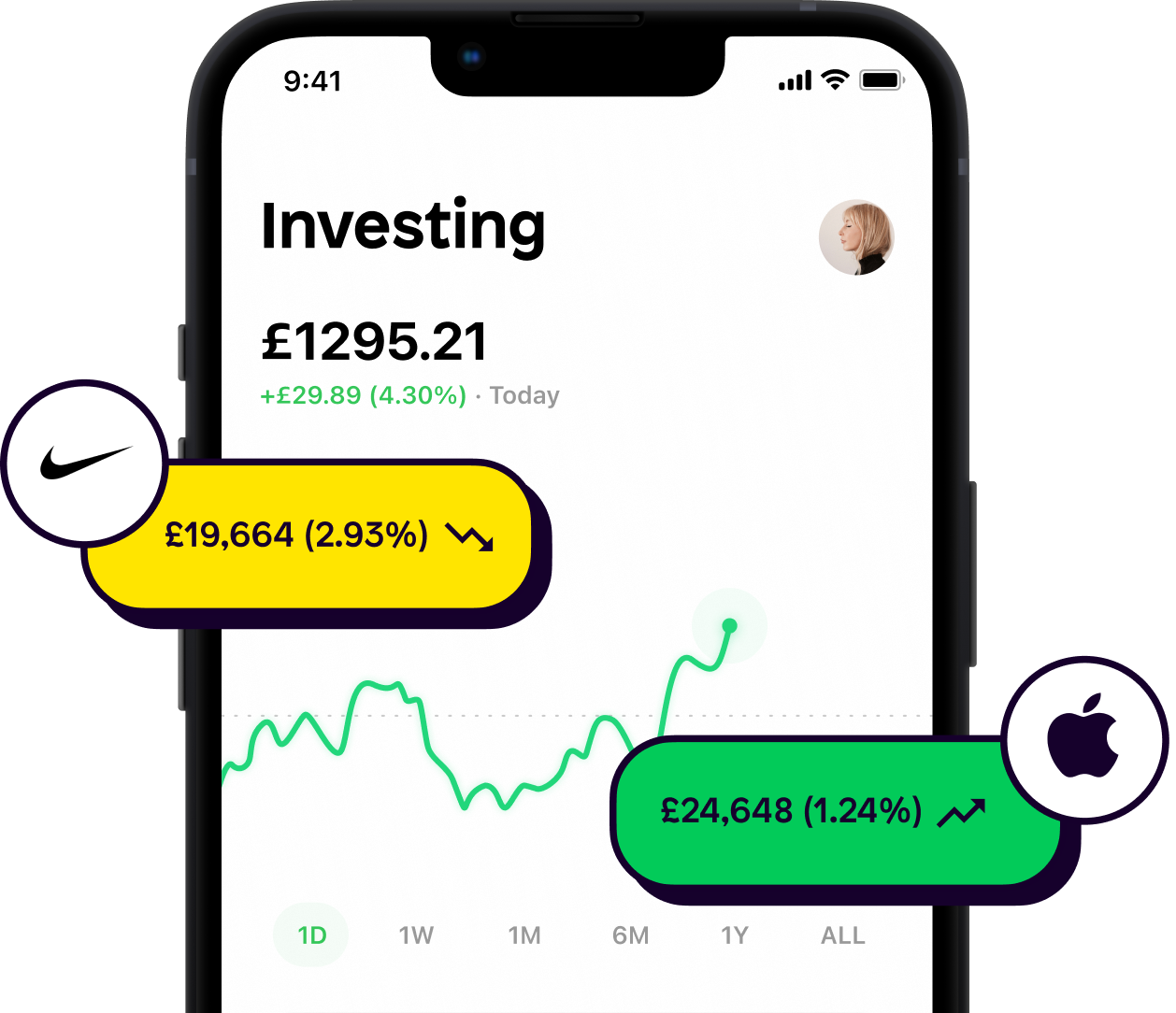This three-step guide aims to help you decide how much of your £90k salary you should be investing.
(If you earn more/less than £90,000, check out our other guides at the bottom of this page.)
Of course, each person’s financial situation is different, so be sure to crunch your own numbers before investing!
Step 1: figure out how often you should invest
Contrary to popular belief, you don’t need a lump sum to get started with investing. If you want to invest a portion of your salary regularly, you may want to consider dollar-cost averaging. It's an effective way of investing when receiving your salary on a monthly basis.
It involves investing equal amounts of money into the market at regular intervals (daily, weekly, monthly) regardless of whether the market is rising or falling. It adopts a long term approach, where an investor won't change how much they're investing, despite market conditions.

Step 2: figure out how much
By the time national insurance, tax, a possible student loan and pension deductions of 5% have been made to your salary, your yearly take-home pay will be around the £52,900 .mark, or £4,303 per month.
Now, applying the 50/30/20 budgeting rule of 50% spent on needs, 30% on wants, and 20% on savings, we can assume you may want to save/invest 20% of £4,303. This would be £882 per month.
First, it's important to have 3–6 months worth of savings. This is to help prepare for any potential emergencies. Simply work out your monthly outgoings and multiply this by 3 (or however many months worth of savings you'd like to have).
Once your savings are set up (taking advantage of any tax relief ISAs), you could look towards investing.
Step 3: make the investment
So, now you know how much to invest each month and you have your savings set up. Great!
Now, it's time to decide what to invest in.
Diversifying is recommended for a beginner, as it helps reduce risk. You can diversify by picking stocks in different sectors and countries (the Shares app has a fancy stock screener to help with this). Or, you can choose to diversify by investing in a range of different asset classes (read more on this in our guide on understanding asset classes).
So, this part is really down to you.
Firstly, can you realistically afford to invest £882 each month? If so, picking which assets match your financial goals is key.
If £882 is unrealistic, then make sure to re-budget an amount that is achievable. There’s no point over investing if you can’t afford basic needs!
If investing in stocks is something you want to explore, check out our article on how to invest in stocks and the different types of stocks available.
Or, if you're keen to explore other assets, visit our guides on:
Guides on other salaries
Earning more/less than £90,000 and want a similar breakdown? Remember to check out our other pieces on:
Got more questions on investing? Join our community inside the Shares app and ask away!
Make sure to follow us on our socials 👇
As with all investing, your capital is at risk.
Shares does not provide investment advice. If you are unsure about anything, please seek advice from an authorised financial advisor. This content is for educational purposes only. Shares App Ltd is an appointed representative of RiskSave Technologies Ltd, which is authorised and regulated by the Financial Conduct Authority (FRN 775330). Shares App Ltd is a company registered in England and Wales with company number 13374448.












